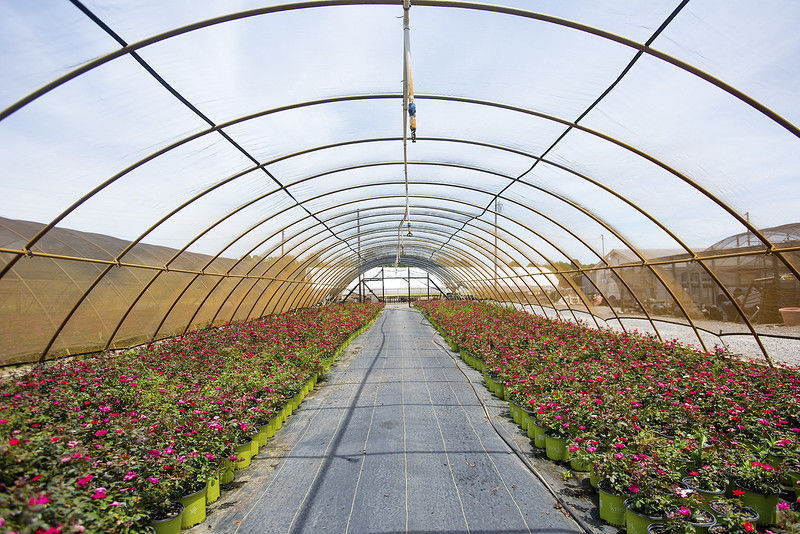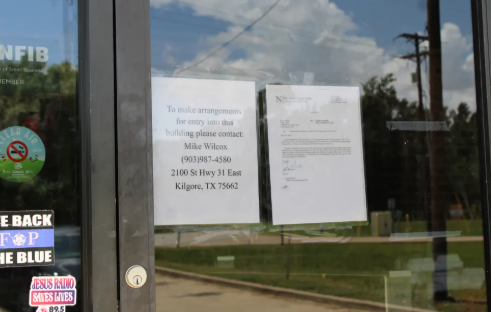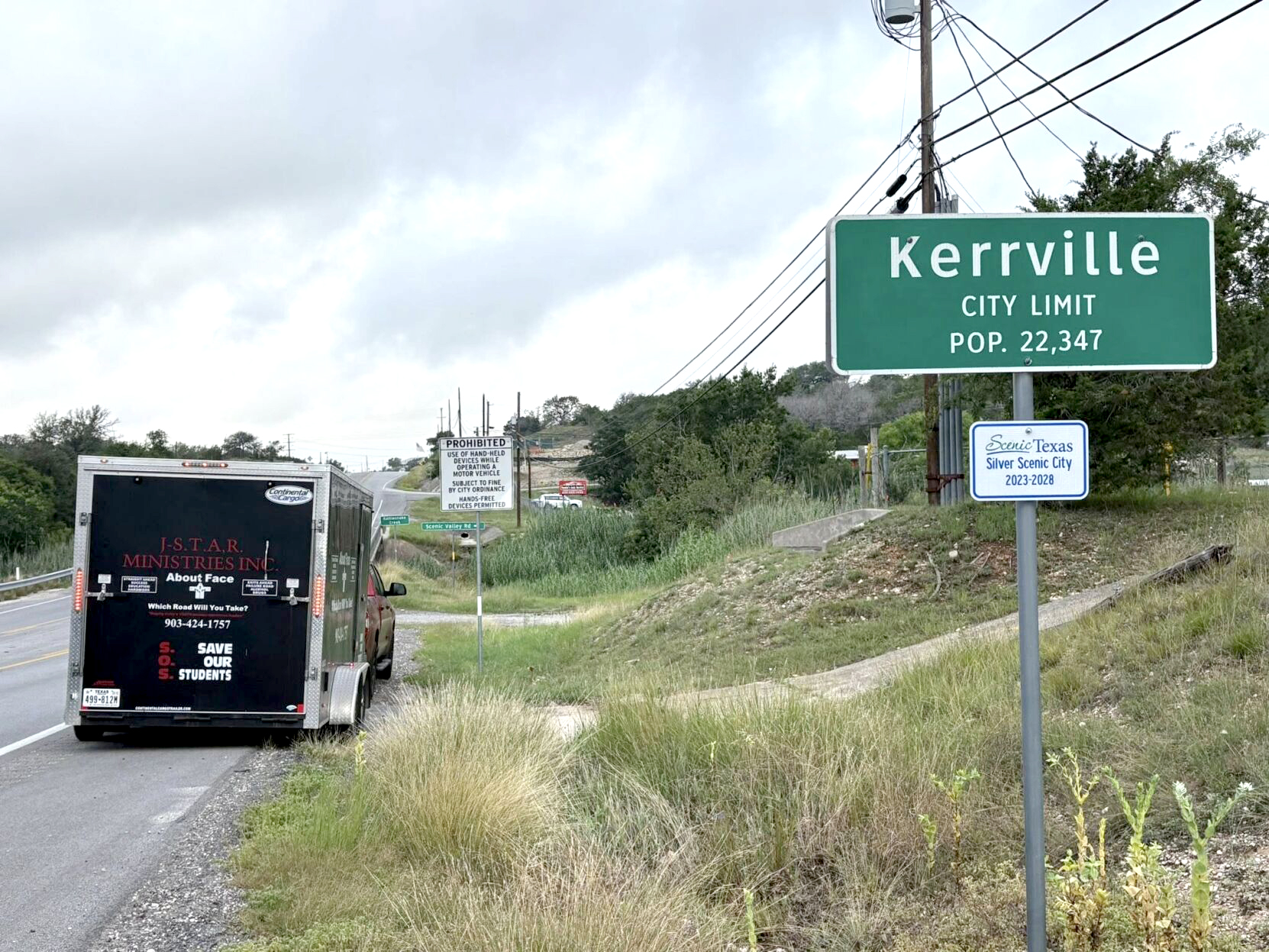Grower Mark Chamblee, longtime advocate for Tyler’s rose industry, set to retire
Published 11:41 pm Friday, July 28, 2017

- A greenhouse at Chamblee's Rose Nursery in Tyler, Texas, on Thursday, July 27, 2017. Mark Chamblee is retiring after starting in the industry in 1974 and buying the nursery from his father in 1982. (Chelsea Purgahn/Tyler Morning Telegraph)
Don’t read too much into the “For Sale” sign at Chamblee’s Rose Nursery. Mark Chamblee says although he’s retiring, he’s not going anywhere. He wants to remain involved in the industry his family has helped shape since 1953.
“I’ll still be active, but I’ve been doing this since 1974 – for my whole life, really, because my dad got into the rose business the year I was born, in 1953,” Chamblee, 64, said. “I love this business. I wouldn’t have stayed in it my whole life if I didn’t.”
Trending
Some of Chamblee’s earliest memories are of roses.
“I remember going out to the fields, watching my mom and dad taking the cut roses off the bushes,” he said. “That’s when we sold cut roses for 25 cents per dozen. I remember my dad teaching me to drive our tractor, an old Farmall 110. I have a photo of me sitting on that tractor, in a straw hat. I was probably 2.”
HEYDAY
In those years, the rose industry in East Texas was in its heyday.
“A lot has changed,” Chamblee said. “The industry here really peaked in the 1970s and ’80s, when more than half of all the roses produced in the world were produced here. But freezes, droughts and better methods of farming moved the center of production from East Texas to California. Once, there were more than 65 rose growers here. Today, there are about five – and I’m one of them. If whoever buys this land doesn’t choose to continue it as a rose nursery, that’s one less.”
Trending
The industry was already on the rise in East Texas when Mark’s father, Roland Chamblee, a World War II veteran, started growing roses on land they purchased on U.S. Highway 69. That was 1953, just 20 years after the Texas Rose Festival was established.
“Dad and mom built a house out here, and that’s where I grew up,” Mark said. “I learned to walk in these fields.”
And so the rose industry itself grew. In the late 1950s, Tyler produced more than 20 million rose bushes each year. Refrigerated box cars, by that time more common and less costly, enabled Tyler rose growers to ship bushes and flowers throughout the country.
By 1973, the value of Tyler roses and rose bushes, shipped worldwide, was estimated at $9 million. Tyler’s designation as “Rose Capital of the World” wasn’t hyperbole – it was the truth.
But in 1983, a hard freeze devastated local rose growers.
“That freeze took out three years’ worth of crops,” said Chamblee. “It took the seedlings, it took the budding roses, it took the rose bushes in the field. A lot of farmers just couldn’t recover from that.”
Many of the growers who did stay in business moved their operations to California.
“One thing we lack here, that California has, is large, flat acreage you can plow and irrigate,” he said. “In Bakersfield, you can have a million rose bushes in one field. You can’t do that in East Texas. So our growers started investing there.”
The New York Times even had a story in 1998 headlined, “In one East Texas town, the bloom is off the rose.”
“The (Texas Rose) Festival is rapidly becoming the most colorful part of Tyler’s rose industry,” the article said. “The days when most of the bushes containing red, yellow and pink roses sold in this county were grown in this sandy stretch of Texas prairie are long gone. Today, if a local man makes his living in roses, he is just as likely to do it packaging rose bushes grown elsewhere – in California or Arizona, perhaps.”
Chamblee said that’s still true. Though not as many roses are grown here, most roses sold in the United States are still processed here. David Austin Roses, for example, is based in Great Britain, but the roses are largely grown in California and processed and shipped out from Tyler.
“Tyler’s still important to the industry,” he said.
FAMILY BUSINESS
Chamblee never intended to go into the family business, he said.
“I started at Baylor in pre-med,” he said. “But I came back when dad needed me. I took a few classes at Tyler Junior College, just to get some basics out of the way. I found that I really enjoyed the business classes. And I really enjoyed employing those principles every day here at work.”
He bought the business from his father in 1982. But Chamblee said he doesn’t fault his own children for not wanting to take over the business.
“My son and daughter are very happy doing what they’re doing now,” he said. “That’s what I really want for them. I think they knew this wasn’t for them when I had them pulling weeds as children.”
Chamblee’s wife, Sharon, isn’t as involved in the business as she once was. At one time, they had a floral business, a rose-themed bed-and-breakfast and even a gift shop. They freeze-dried their flowers – they were called “Froses” – and also fruits such as strawberries. And Chamblee’s Rose Nursery once carried 300 varieties of roses.
“We’ve done a lot of things here, but over the years, we’ve downsized some,” he said. “I’m down to about 200 varieties.”
But Chamblee will leave a lasting impression on the Tyler rose industry.
“Mark has been a tireless advocate for the rose business, not only in Tyler but throughout the southwest,” said Tom Mullins, president and CEO of the Tyler Economic Development Council. “He’s been a tremendous resource for us at the Visitors Bureau and the Chamber of Commerce, helping to promote the industry. He speaks to a lot of groups, not just industry groups, but really anyone who will sit still and listen to him talk about roses.”
Smith County Commissioner Cary Nix has been a part of that industry, as well, though he’s no longer growing roses himself. He says Chamblee has played an important role in the industry.
“He’s been an outstanding spokesperson for the industry here,” Nix said. “That family has been a key part of the history of Tyler, I believe. But the rose business is hard work, and I sure understand him being ready to retire.”
REBUILDING
In 2014, Tyler’s Rose Garden Center lost 60 percent of its roses in an early spring freeze. Chamblee was called in to help repair the damage – and improve the practices at the city’s crown jewel.
“Mark’s family’s business has been a cornerstone in the industry in Tyler,” said Stephanie Franklin, the city’s managing director. “They’ve always supported the Rose Garden, and they have a wealth of institutional knowledge. So in 2014, he was a driving force behind putting us on a rotation cycle, and the latest and best industry standards.”
The average life span of a rose bush is about seven years, Chamblee explained. A healthy rotation of bushes would have limited the damage of that freeze. He helped the Rose Garden Center develop a plan for plant rotation, and he brought the city’s workers up to speed on the best growing methods.
“That’s just one example,” Ms. Franklin said. “He gives lectures during the Rose Festival, and we drive groups out to Chamblee’s Rose Nursery so they can learn more. He’s given his time and energy so graciously whenever we’ve needed him. I hope he’ll still be around for us to lean on some.”
That will continue, Chamblee said.
“I do plan to remain active in the Texas Farm Bureau and in the nursery trade association. I might even still work in the industry, if I can find something that’s not 80 hours a week. But I’m ready to slow down.”
Chamblee said he and his wife have built a home near Mineola.
“I’m going to catch up on my fishing and my hunting,” he said. “I’m going to relax a little.”
TWITTER: @tmt_roy






